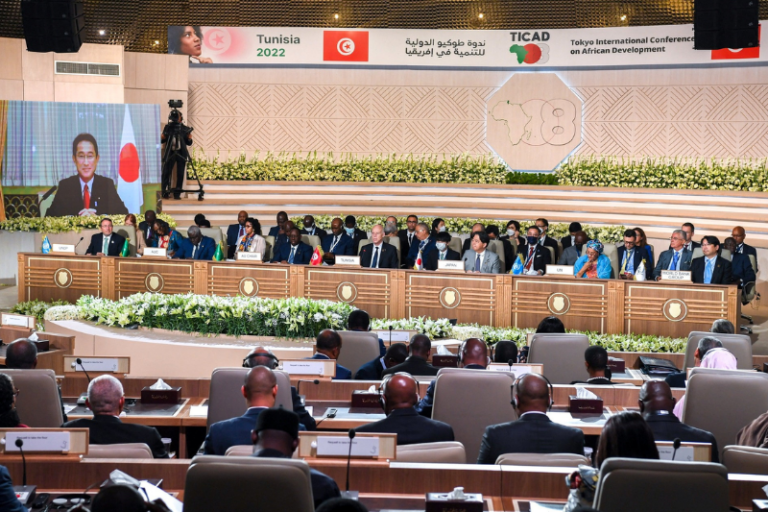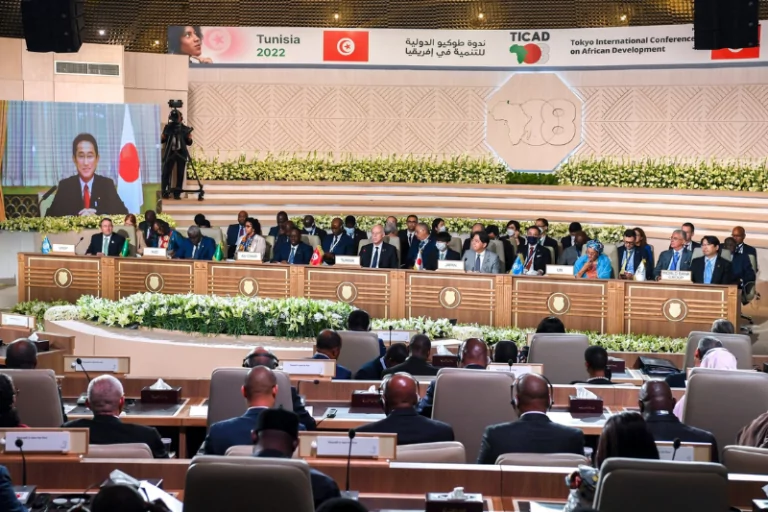

japans precious footprint in africa
The trench warfare in Ukraine reminds us of World War I and China’s global ambitions are similar to the search for «a place in the sun» of Germany’s last emperor William II. In the Far East and particularly in Japan, one notes ominous signs of developments similar to those that led up to the Pacific War from 1941 to 1945. Japan’s leadership feared that its ambitious plans for what they called a «co-prosperity zone» would be thwarted by a shortage of essential raw materials and natural resources. Japan then as today is a country with little or no natural resources.
In 2010, Japan faced a sudden suspension by China of the supply of rare earth materials, presenting a new challenge to trade relations. Later on, during the Covid-19 pandemic, Japan suffered supply chain disruptions. The war in Ukraine has further increased Japan’s vulnerability. Like Germany, Japan has to face an important strategic contradiction.
Little thought was given to a substantial tectonic shift in the international security architecture. All of a sudden, the security umbrella no longer looked as safe and reliable as it had during the Cold War.
Its presence in international crisis management was minimal and void of military engagement. This was to change with the second Iraq War and, later on, with the ascent of the internationalist, the late Shinzo Abe, as Japan’s longest-serving prime minister. Of course, Japan Inc. had long ago spread its presence across Asia, with Singapore and Thailand being forerunners for Japan’s economic engagement and with Indonesia, India, Vietnam and Australia following suit. After the tides of time, this expansion of the Japanese presence is no longer restricted to economic issues but is very much part of security concerns.
that opened Asia to the world in the 19th and 20th centuries. Unlike European colonial powers, Japan never had an overseas presence in Africa and Latin America, while it did take over – albeit for a very short time – most of the European colonial possessions in Southeast Asia. Unlike the Chinese, the Japanese did not migrate overseas in large numbers, with the notable exception of Brazil. A highly restrictive immigration policy makes for very small foreign communities in Japan.
Almost all foreigners come from China, South Korea, Vietnam or the Philippines. The African presence is minuscule and, correspondingly, there is hardly any interest in the continent. Given its reliance on global trade, Japan measures its foreign relations in trade and investment volumes. And even here, the entire, huge continent of Africa is marginal.
Last year the total trade volume of Japanese exports reached $747 billion. At the same time, the entire bilateral trade volume between Japan and Africa was a mere $24 billion.
Japan is increasing its aid volume substantially through Official Development Assistance . Since 1993 Japan has led the Tokyo International Conference on African Development , a forum cohosted by the United Nations, the United Nations Development Program, the World Bank and the African Union Commission. Last year, at the 8th TICAD in Tunisia, Japan pledged $30 billion, coming after China had promised $40 billion the year before. TICAD is focused on the economy, society, peace and stability – the core issues of Japan’s overseas engagement.
This is due both to the high quality of Japanese technical assistance and to the efficiency of project implementation. Japanese engagement in Africa, on the other hand, is based on values that are familiar to Western countries and societies.
There are powerful voices in Japan’s political and economic establishment who advocate a more China-like strategy when deciding who and what fields should profit from Japanese aid and trade. The argument is that Japan’s approach inevitably loses out to China. However, there are significant counterarguments, which are not altruistic but also appeal to the interests of Japan and the recipients. It may be true that in the short term, the Chinese approach might give greater returns by strengthening its influence in Africa.
Equally telling are the financial challenges that result from the structure of Chinese development aid, which leaves developing countries with giant debts that are hard to service.
While power politics will remain within the scope of a third scenario, there is nevertheless the chance and the challenge that the footprints of Japan’s development policy will become more effective. Japan has international ambitions, the most emblematic one being a permanent seat in the United Nations Security Council, which might be more achievable if it displays its soft power in terms of societal values that guide its aid program.
National teams from Africa advance their World Cup qualification pursuit as they take part in Matchday 5 of the qualifiers.…
Creative Africa Nexus (CANEX) is running the Book Factory Prize for Publishing in Africa again to award $28,000 to African…
Canadian companies have expanded their presence as major African mining stakeholders and invested more than $37 billion. Africa holds the…
The South African government wants people to plant one million trees across the nation within a single day on September…
The government's statistics regulator showed that South African inflation stayed at 3.2% during February and rose below the projected 3.3%.…
Keywords: Cape Town, African Energy Chamber, Africa, The 2025 African Energy Week (AEW) will host the top energy leaders from…
This website uses cookies.